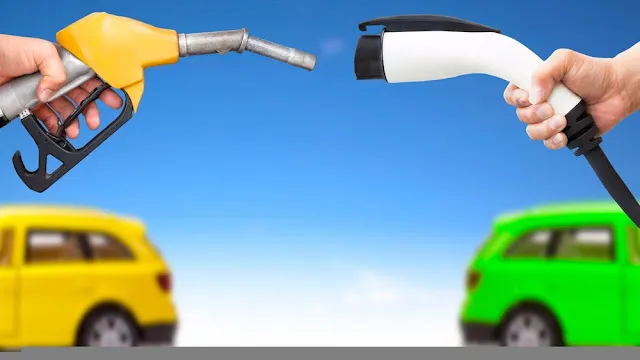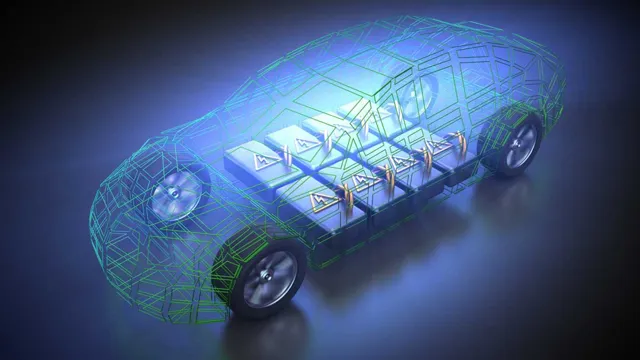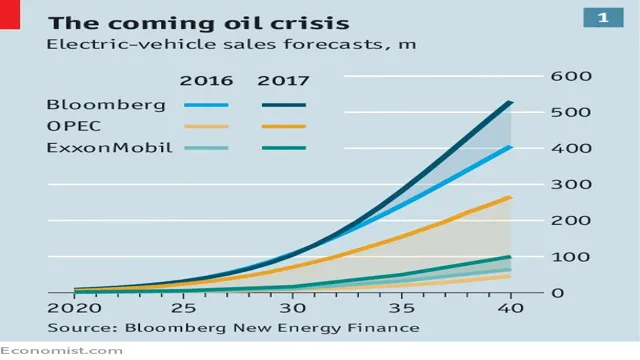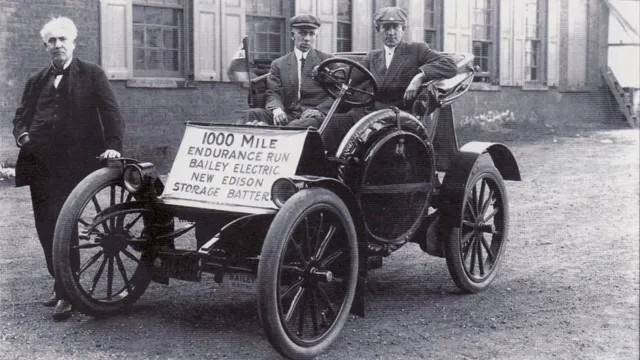Exploring the Challenges of Depleting Battery Resources in the Age of Electric Cars
Electric cars could be the future of transportation with their environmentally friendly features, but the resources used to manufacture the batteries that power these vehicles present an alarming issue. As more and more consumers switch to electric cars, concerns about depletion of the battery resources are on the rise. With the demand for efficient and powerful batteries, it’s inevitable that resources will run out, causing both environmental and economic issues.
In this blog, we will explore how electric car battery resources depletion can pose a threat to our environment and what steps can be taken to mitigate it. Let’s deep dive into how electric vehicle batteries deplete natural resources.
Current State of Electric Car Battery Resources
The rapid growth in the electric car industry has raised concerns about the depletion of battery resources. The batteries used in electric cars rely on rare earth metals such as lithium, cobalt, and nickel, which are not only scarce but also environmentally damaging to extract. As electric cars continue to gain popularity, the demand for these metals is only going to increase, putting a strain on the already limited resources.
However, solutions are already being developed to tackle this problem. Research is underway to find alternative battery technologies that do not rely on rare earth metals and are more sustainable. Additionally, recycling programs are being put in place to salvage valuable metals from used batteries.
Despite these efforts, it’s important to acknowledge that transitioning to electric cars is not a perfect solution and comes with its own set of challenges. As with any emerging technology, there are bound to be hurdles that we need to overcome, but it’s important that we do so responsibly and with a long-term plan in mind.
Statistics on Depletion Rates
Electric car battery resources are a burgeoning technology that has gained popularity in recent years, as the world makes attempts towards more eco-friendly and sustainable measures. The depletion rates for electric car batteries depend largely on the type of battery used. Lithium-ion batteries are the most common type of battery in use today, and they typically last for around 8-10 years before the capacity starts to degrade.
However, new technologies in battery materials and designs, such as solid-state batteries, could extend this lifespan to well over a decade. One of the biggest challenges faced by electric car battery resources is the availability of the raw materials needed to produce them. Lithium, cobalt, and nickel are all commonly used in electric car batteries, and their reserves are limited.
Battery recycling efforts are becoming more important to reduce reliance on new resources and improve sustainability in the industry. As we move towards a more electric future, the development, and sustainability of electric car battery resources will become increasingly crucial.
Factors that Contribute to Battery Depletion
Electric Car Battery Depletion Nowadays, electric cars are becoming more popular, but concerns about their battery life remain a major obstacle to their widespread adoption. Several factors contribute to battery depletion in electric cars. For example, using air conditioning or heating reduces the range of the battery.
Additionally, driving uphill or in heavy traffic also consumes more battery power. Moreover, the batteries themselves can eventually lose their ability to hold a charge over time, leading to less range for each charge. The current state of electric car battery technology is impressive, but it is still a work in progress.
In the future, battery technology will continue to develop, eventually leading to batteries that last longer and are more efficient. Nevertheless, we should still strive to minimize battery depletion by driving more efficiently and avoiding unnecessary use of technology that uses battery power.
Impact of Battery Depletion on Electric Cars
As we move towards a world of electric cars, the issue of battery depletion has become of prime importance. Battery resources may deplete for electric cars, which could result in severe consequences. It is crucial to keep a watchful eye on battery levels to prevent any likelihood of depletion.
The consequences of battery depletion may include damage to the battery’s cells and potential fire risk associated with thermal runaway. It can also impact a vehicle’s range and performance, which can lead to frustrating experiences for drivers. Thus, it is important to monitor the battery’s state of health and charge level to help maintain the battery’s longevity.
This can be accomplished by utilizing efficient battery management systems and charging infrastructures. Additionally, through adequate recycling of batteries, we can help reduce the environmental impact and further the circular economy. It is our responsibility to ensure that we carefully utilize our resources to prevent depletion and maintain a sustainable future for electric cars.
Reduced Range and Performance
Battery depletion can have a significant impact on the range and performance of electric cars. When the battery level drops below a certain threshold, the car’s power output and acceleration can be reduced, and the range can be limited. This is because the battery provides the energy that powers the electric motor, and as the battery depletes, there is less energy available to the motor.
For example, imagine driving an electric car up a steep hill with a half-depleted battery. The car’s acceleration and power would be reduced, and you might not be able to reach the top of the hill without running out of juice. Similarly, if you try to drive the car at high speeds with a low battery, you might experience reduced acceleration and a lower top speed.
To mitigate these issues, many electric cars are designed with sophisticated battery management systems that help to extend the range and optimize performance. These systems monitor the battery’s state of charge, temperature, and other factors to ensure that it is running as efficiently as possible. Additionally, some electric cars are equipped with regenerative braking systems that help to recharge the battery whenever you apply the brakes, which can help to extend the range even further.
Ultimately, the impact of battery depletion on electric cars depends on a wide range of factors, including the specific model of the car, the state of the battery, driving conditions, and more. However, by understanding how batteries work and utilizing the various features and technologies available in modern electric cars, it is possible to maximize range and performance while minimizing the impact of battery depletion.
Safety Concerns and Limitations
Electric cars have revolutionized the automotive industry, with increased efficiency and decreased carbon footprint. However, one safety concern that arises with electric cars is the impact of battery depletion. The battery serves as the main power source of the vehicle, and once it reaches its maximum capacity, it can only provide energy for a certain distance.
As the battery loses its power, the driving range will decrease, and in some cases, the vehicle can come to a complete stop. This can happen unexpectedly, leaving drivers stranded on the road. Therefore, many electric cars come with a range indicator that warns drivers when the battery is running low, allowing them to find a charging station before it’s too late.
However, such limitations do not only affect electric cars, but also traditional gasoline vehicles. All cars need to be refueled regularly, and running out of fuel or energy is a similar consequence. Therefore, it’s crucial for drivers to be aware of their car’s range and to plan their routes accordingly.
Environmental Impact
As electric cars become more popular, concerns about the environmental impact of their battery depletion have arisen. While electric cars are often touted as being “green,” the reality is that the process of producing and disposing of their batteries can have a significant environmental impact. As batteries degrade, they can release toxic chemicals into the environment, including heavy metals such as lead and nickel.
When disposed of improperly, these chemicals can contaminate soil and water sources, posing a danger to both human and animal health. Additionally, the mining of materials needed for battery production can lead to deforestation, habitat destruction, and other environmental damage. However, it’s worth noting that electric cars still have a smaller overall environmental impact than traditional gas-powered cars, even when taking battery depletion into account.
As with any technology, it’s important to weigh the benefits against the potential drawbacks and work towards minimizing any negative effects.
Solutions to Battery Resource Depletion
As the demand for electric cars continues to rise, there is growing concern about the depletion of battery resources. However, there are several solutions being developed to address this issue. One solution is to improve battery recycling processes.
Many companies are investing in research and development to create a closed-loop system where old batteries can be broken down and used to create new batteries. Another solution is to develop more sustainable and eco-friendly battery materials. Researchers are exploring alternative materials, such as sodium-ion and solid-state batteries, that are more abundant and less harmful to the environment.
Additionally, advancements in battery management technology are helping to extend the lifespan of batteries and increase their efficiency. These solutions, along with continued innovation in the industry, provide hope that battery resource depletion can be mitigated as electric cars become more prevalent on our roads.
Advanced Battery Technologies
Advanced Battery Technologies As the demand for battery-powered devices and vehicles increases, there is a growing concern about the depletion of natural resources needed to manufacture batteries. However, advanced battery technologies may hold the key to ensuring that we can continue to use rechargeable batteries without depleting essential natural resources. For example, some companies are developing batteries that use alternative materials, such as sodium instead of lithium.
Additionally, improved recycling processes can recover valuable materials from used batteries, reducing the need for mining. Furthermore, other companies are exploring new charging methods, such as wireless charging, that can reduce the need for battery replacements over time. By combining these advanced technologies, we can create a more sustainable battery ecosystem, where we can continue to enjoy the benefits of rechargeable batteries without damaging the environment.
Efficient Charging Solutions
With the growing demand for mobile devices, battery depletion has become a major concern for users. Fortunately, efficient charging solutions have been developed to address this issue. One such solution is fast charging, which allows for quick recharging of a mobile device’s battery without causing damage.
Another option is wireless charging, which eliminates the need for cords and cables and provides a convenient way to charge multiple devices simultaneously. Portable chargers are also a popular choice, as they provide a way to charge on-the-go when an outlet is not readily available. In addition to these solutions, there are also various battery-saving tips that users can employ to prolong the life of their mobile devices.
These include lowering the screen brightness, turning off unnecessary applications, and disabling features like location services when they are not in use. With the right charging solutions and habits, battery depletion can become a thing of the past and users can enjoy uninterrupted mobile usage.
Conclusion
While electric cars are certainly paving the way towards a more sustainable future, there is no denying that their reliance on batteries presents a unique set of challenges. As we continue to explore alternatives to traditional fossil fuels, it’s important that we also investigate ways to make battery production and disposal more eco-friendly. Ultimately, the success of electric vehicles will depend not just on the technology itself, but on our ability to manage and preserve the resources that power them.
So keep on charging, but don’t forget to conserve!”
FAQs
What is meant by battery depletion in electric cars?
Battery depletion in electric cars refers to the gradual decrease in the amount of energy stored in the car’s battery over time as it is used.
How long does an electric car battery last before it needs to be replaced?
The lifespan of an electric car battery depends on many factors, including the type of battery, driving habits, and environmental conditions. However, most electric car batteries are designed to last at least 100,000 miles or more before needing to be replaced.
Are there any ways to extend the life of an electric car battery?
Yes, there are several ways to extend the life of an electric car battery, including driving with a light foot, avoiding frequent fast charging, and keeping the battery charged between 20-80%.
What happens to the battery when it reaches the end of its life?
When an electric car battery reaches the end of its life, it can be recycled to recover valuable metals such as lithium, cobalt, and nickel. This helps to reduce the demand for new resources and minimize the environmental impact of battery production.




